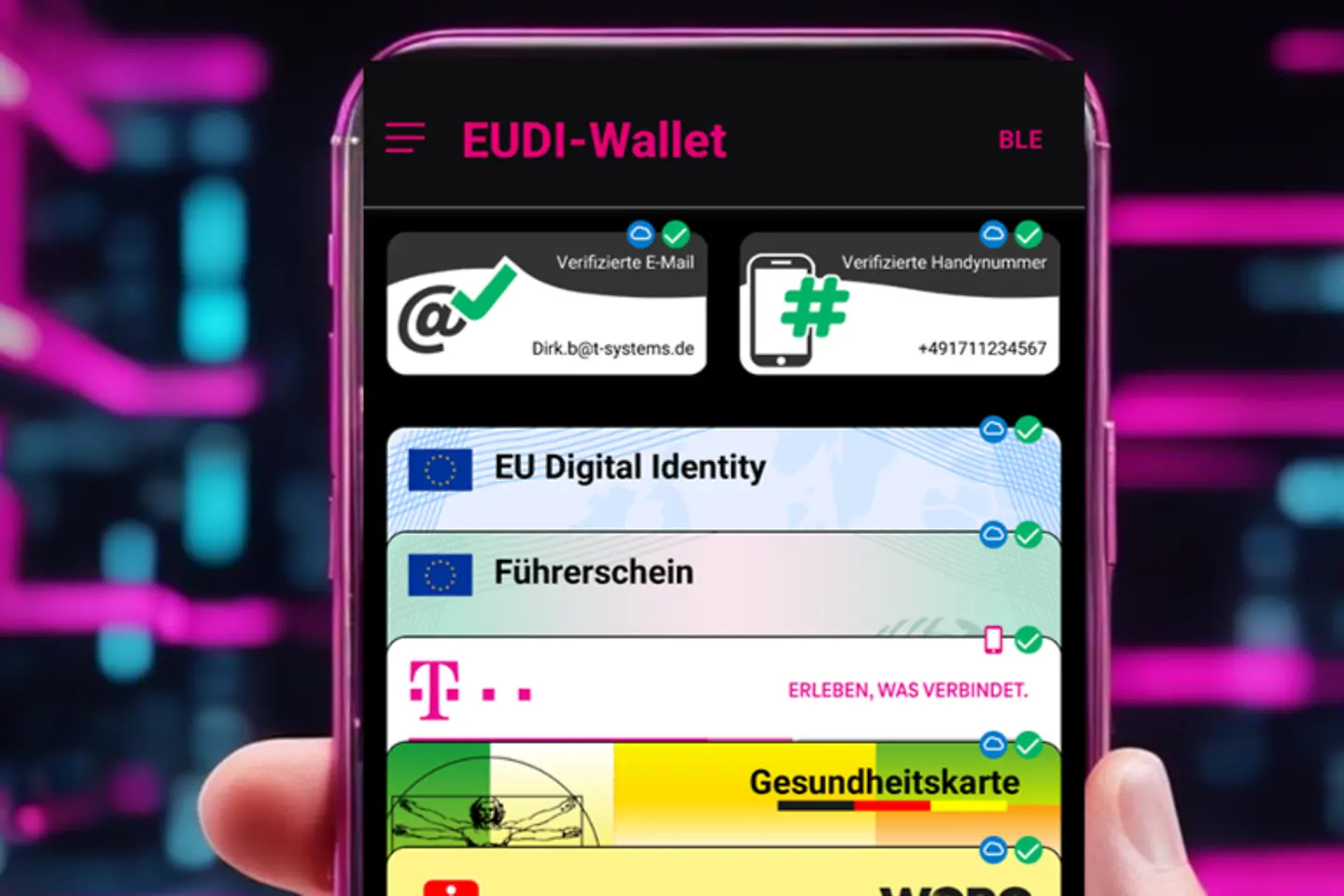
Digitalization has started at all levels of society. So far, we have overlooked a cardinal mistake in digitalization. Today, masses of accounts are still created based on login name = “fantasy Name@email address” and password. The confirmation that you have access to the e-mail address is enough and there is already a “digital identity”. Unfortunately, we are still miles away from a legally binding confirmation of the real identity of the user. For this purpose, these “free” accounts are often hosted on international web platforms from overseas and the user pays with his usage data, because this usage data is of course monetized by the hyperscalers. Sovereignty? Not at all!
With the Europeans focusing on the urgently needed technological independence and sovereignty, there is now a unique opportunity. We are giving citizens back sovereignty over their data and it’s up to them to decide when to release which data to whom and why. All identity information and usage data belong exclusively to the customers and only they should have the access to their multi-encrypted data, which is stored exclusively in Europe.
Digitalization without secured digital identities? This doesn't work. Only if it is legally possible to prove who is being processed in the digital media, then the digitalization breakthrough on the mass market will succeed. This applies to people as well as to objects or machines in the future.
At the same time, the traditional system of fragmented and incompatible ID solutions in Europe must be fundamentally revolutionized.

A unified standard for all 27 EU member states, agreed by the EU Commission and the EU Parliament and equipped with a clear technical implementation framework via the EUDI Wallet Architectural Reference Framework (ARF).
The introduction will become legally mandatory for all EU member states in October 2026. Citizens will then be able to store all types of evidence in their EUDI Wallet across borders, securely, legally binding with the highest level of trust, for example:
The EUDI Wallet thus becomes the master key of digital social life – for the authorities, in the economy and also in the private sphere.
The EUDI Wallet is no longer a vision: While the German government and SPRIN-D (Federal Agency for Disruptive Innovation) are developing an EUDI Wallet, we, at Deutsche Telekom, have also built a version of an EUDI Wallet. This includes a Remote Trusted Secure Element (R-TSE) in the Open Sovereign Cloud ensuring the maximum level of security and trust across all credentials. We also leveraged our experience in developing the ID Wallet projects at the health insurance companies such as BARMER and AOK. This makes us independent of the often non-existent access options to the smartphone TSEs (Trusted Secure Elements, a specially protected storage area on the smartphone for storing keys and documents).

The EUDI Wallet with the secure and legally binding digital identity, which is easy to use for every citizen, will be the master key for the digitalization turbo in Germany.
Dirk Backofen, responsible for the Digital Identity Business of Deutsche Telekom and T-Systems
The digital identity and the proofs are stored in multiple encrypted form in the Open Sovereign Cloud, an open-source-based cloud development by T-Systems, in Germany. All keys are generated and managed in the Hardware Secure Module (HSM) in the cloud, and the data is encrypted even during processing. This also makes it easy and secure to switch such an ID Wallet to another device in the event of loss or device replacement. No one except the customer himself has access to his data. The operator of the EUDI Wallet system cannot read data or create user profiles either.
The number of use cases available from the start will have a significant impact on the EUDI Wallet’s success. Therefore, we are interested in a large public-private partnership with the German government with other representatives of the economy in the introduction of the EUDI Wallet in Germany. In this way, all forces and existing developments could be bundled and we could jointly map attractive use cases that citizens will really experience every day.
In addition to the elimination of the need to carry physical plastic cards for the ID card and driver's license, personal payment without a credit card from the EUDI Wallet will be possible with legally binding age verification. Payment abuse of credit cards is also a thing of the past. Many patients would like to be able to check in to the doctor only with their smartphone – no more plugging in the electronic health card (eGK). Both when reading the eGK into the EUDI Wallet and when reading from the wallet, simple QR code reading processes are used in the EUDI Wallet.
This is no longer a dream of the future and will already be tested in the large scale pilots for the EUDI Wallet in the fall of this year. The EUDI Wallet is not only an innovation and push effect for digitalization, but it will also massively help to save costs. The mandatory issuance of physical plastic cards can be reconsidered – the world around us is really becoming digital, simple and yet secure, end to end.